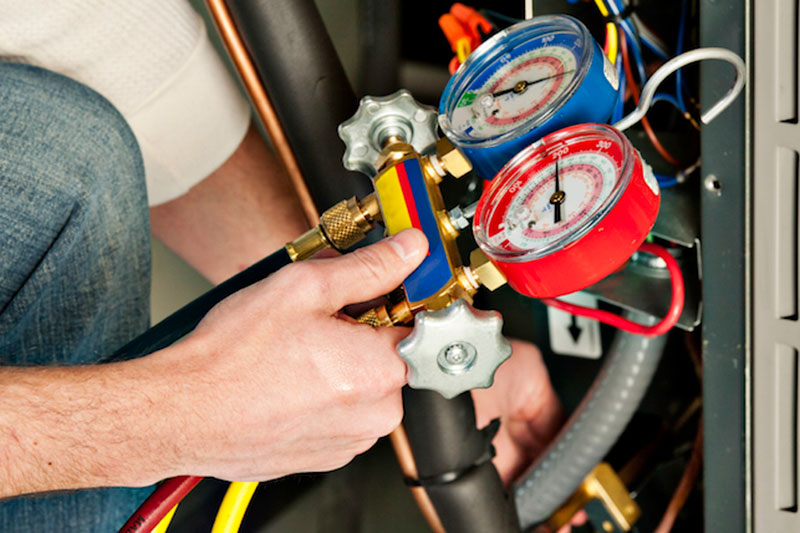
You might not think a lot about how your air conditioner functions, but it depends on refrigerant to keep your residence cool. This refrigerant is bound by environmental rules, because of the chemicals it contains.
Based on when your air conditioner was installed, it may need R-22, R-410A or R-32 refrigerant. We’ll discuss the differences and which air conditioner refrigerants are being phased out in Norton, as well as how these phaseouts affect you.
What’s R-22 and Why Is It Discontinued?
If your air conditioner was put in before 2010, it probably contains Freon®. You can learn if your air conditioner uses it by contacting us at 276-302-0076. You can also inspect the name plate on your air conditioner condenser, which is located outside your house. This sticker will have information on what model of refrigerant your AC uses.
Freon, which is also called R-22, includes chlorine. Scientists consider this chemical to be bad for the earth’s ozone layer and one that prompts global warming. The Environmental Protection Agency, which manages refrigerants in the United States, barred its manufacture and import in January 2020.
I Have a R-22 Air Conditioner. Should I Replace It?
It depends. If your air conditioning is cooling correctly, you can continue to use it. With yearly air conditioner maintenance, you can expect your air conditioning to work around 15–20 years. However, the Department of Energy says that replacing a 10-year-old air conditioner could save you 20–40% on yearly cooling bills!
If you don’t install a new air conditioner, it may lead to difficulties if you need air conditioning repair down the road, specifically for refrigerant. Repairs may be higher-priced, since only reduced amounts of recycled and reclaimed R-22 is available.
With the end of R-22, most new air conditioners now have Puron®. Also called R-410A, this refrigerant was developed to keep the ozone layer strong. As it needs a different pressure level, it isn’t compatible with air conditioners that use R-22 for cooling.
However, Puron still has the possibility to lead to global warming. As a result, it might also ultimately be ended. Although it hasn’t been mandated yet for residential air conditioners, it’s anticipated sometime this decade.
What Refrigerant Will Take Over R-410A?
In preparation of the phaseout, some manufacturers have initiated using R-32 in new air conditioners. This refrigerant ranks low for global warming likelihood—approximately one-third less than R-410A. And it also lowers energy expenditure by about 10%, according to the Intergovernmental Panel on Climate Change’s Fourth Assessment Report. That’s savings that may be passed on to you through your utility costs.
HCE Systems Can Assist with All Your Air Conditioning Needs
In summary, the modifications to air conditioner refrigerant probably won’t concern you greatly until you require repairs. But as we talked about beforehand, repairs connected to refrigerant may be more expensive since there are the restricted amounts on hand.
In addition to that, your air conditioner typically stops working at the worst time, often on the muggiest day when we’re experiencing many other appointments for AC repair.
If your air conditioner requires a phased out refrigerant or is getting old, we advise getting a new, energy-efficient air conditioner. This ensures a hassle-free summer and can even lower your cooling bills, especially if you get an ENERGY STAR®-rated air conditioner. Plus, HCE Systems has many financing programs to make your new air conditioner work with your budget. Contact us at 276-302-0076 to begin now with a free estimate.
